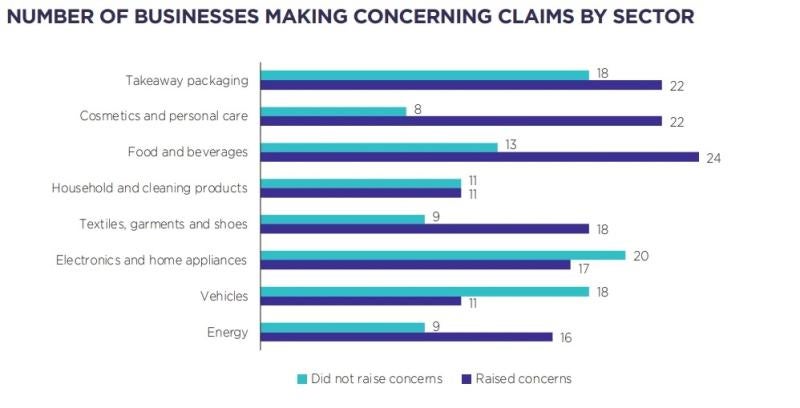In Brief
The ACCC has published the findings of its recent internet sweep of environmental and sustainability marketing claims made by businesses. Across 247 company websites, the ACCC found that 57% of businesses had made concerning claims about their environmental practices.
The ACCC's report provides useful guidance for businesses about the regulator's views on when environmental and sustainability claims may breach the Australian Consumer Law (ACL), including:
-
Vague and unqualified claims or those without substantiating information may amount to misleading or deceptive conduct: examples include packaging which "contains post-consumer recycled plastic" and goods produced using "sustainable materials" without further information to explain the basis for the claim or qualify its meaning;
-
Exaggerating benefits or omitting relevant information may amount to misleading or deceptive conduct: examples include a claim by a business that its offsetting carbon emissions has a "positive" impact on the environment when it has not taken steps to reduce its overall emissions, and claims of sustainability benefits based on broad scientific opinion rather than specific features of the product; and
-
The use of forward looking or aspirational claims without supporting information about how goals will be achieved may amount to misleading or deceptive conduct: the ACCC highlighted that many businesses' goals were expressed in general terms and it was not clear how businesses will reach these targets.
The ACCC has signalled that it will now commence investigating a number of businesses with claims of concern identified in its review. Businesses should act quickly to:
-
Identify any claims that have an environmental or sustainability aspect;
-
Assess whether these claims comply with the ACCC's guidance;
-
Make changes to the claims where needed and evidence the basis for the claims; and
-
Put in place internal processes to keep track of and update claims as scientific data progresses or circumstances change.
In More Detail
The ACCC has published the findings of its internet sweep of environmental and sustainability marketing claims. The ACCC's comprehensive review assessed 247 businesses across 8 industries (see Figure 1 below).

Figure 1: ACCC, 'Greenwashing by businesses in Australia' report (March 2023), page 2.
What Issues were Identified by the ACCC and What Guidance did the ACCC Provide?
The ACCC identified eight key issues with the marketing of environmental and sustainability practices by the businesses reviewed:
Issues |
Examples of Concerning Conduct |
ACCC Guidance |
|---|---|---|
|
1. Vague and unqualified claims |
Vague Terms
Unqualified Claims
|
|
|
2. A lack of substantiating information |
|
|
|
3. Use of absolute claims |
|
|
|
4. Use of comparisons |
|
|
|
5. Exaggerating benefits or omitting relevant information |
|
|
|
6.& Use of aspirational claims, with little information on how these goals will be achieved |
|
|
|
7. Use of third-party certifications |
|
|
|
8. Use of images which appear to be trustmarks |
|
|
What's Next
The ACCC has stated that it will:
-
Be issuing economy-wide guidance material and targeted guidance for some sectors, and will engage with businesses and industry associations to improve ACL compliance; and
-
In parallel, be investigating whether a number of the environmental claims identified during the sweep may be in breach of the ACL and that the relevant businesses will then be subjected to compliance or enforcement action, including administrative resolutions, infringement notices or legal proceedings if appropriate.
The ACCC is also actively asking consumers and businesses to contact it to report any potentially misleading environmental or sustainability claims. It is also encouraging businesses that may have made false or misleading claims to come forward, stating,
"businesses who cooperate and advise of any issues with their operations, will be considered more favourably than those who wait for the ACCC to unearth these problems."
Key Takeaways For Businesses
Businesses in all industries (but particularly those in the industries identified in the ACCC sweep) should act quickly to:
-
Identify any claims that have an environmental or sustainability aspect;
-
Assess whether these claims comply with the ACCC's guidance;
-
Make changes to the claims where needed and evidence the basis for the claims; and
-
Put in place internal processes to keep track of and update claims as scientific data progresses or circumstances change.






 />i
/>i
